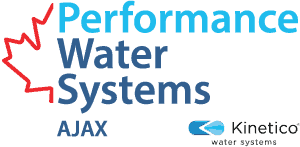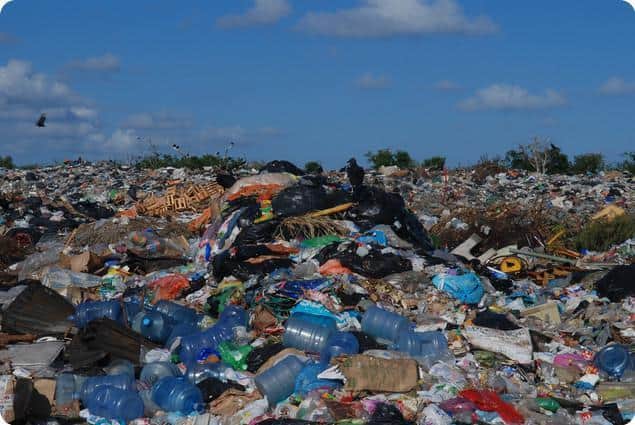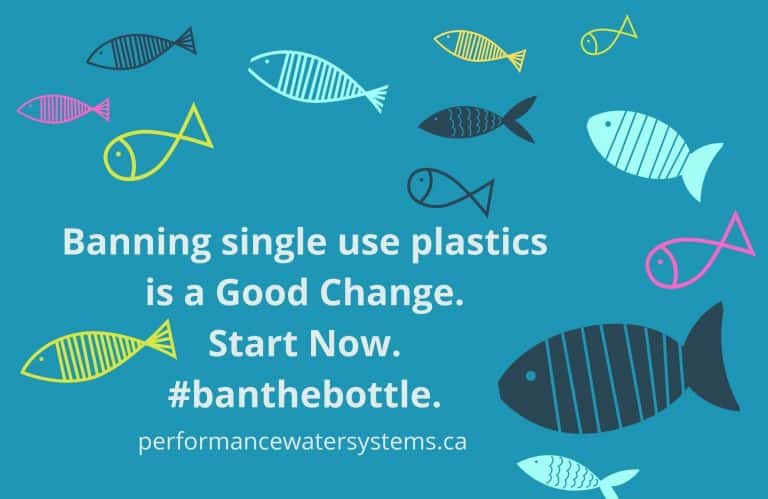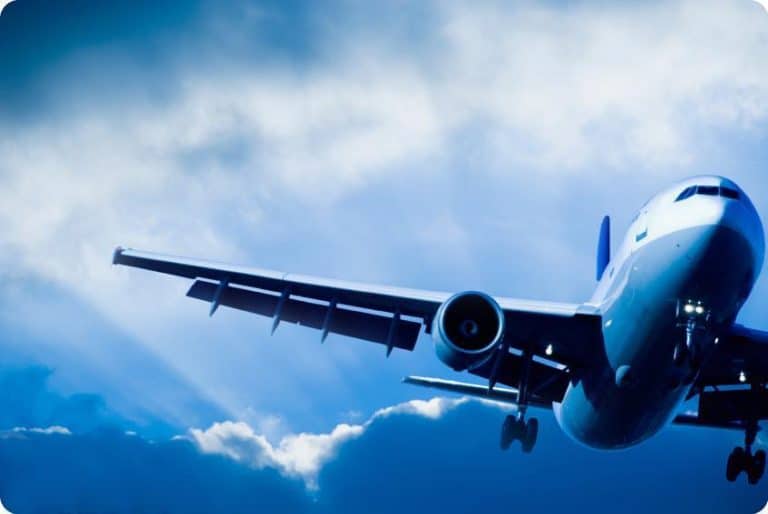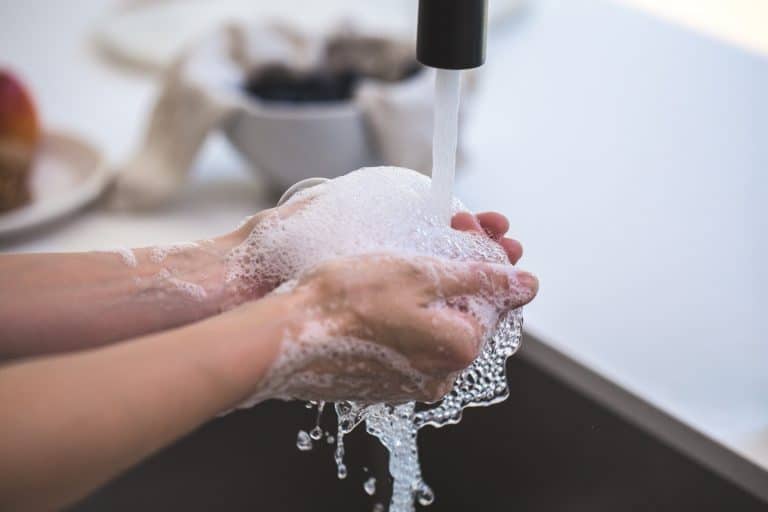What the bottles are made of…
- 12 million barrels of oil are used every year in worldwide bottled water manufacturing. The plastic most commonly used to make the bottles is polyethylene terepthalate (PET), which is derived from crude oil. A study conducted by the Berkeley Ecology Center found that manufacturing PET “generates more than 100 times the toxic emissions —in the form of nickel, ethylbenzene, ethylene oxide and benzene —compared to making the same amount of glass”.
- Did you know that re-used plastic water bottles can leach chemicals such as DEHA, a possible human carcinogen, and benzyl butyl phthalate (BBP), a potential hormone disruptor. And one University of Winnipeg study found traces of lead in several brands of commercially available bottled water in Canada.
Is the water bottle industry regulated?
Unfortunately, current regulations in Canada do not set any chemical or radiological standards for bottled water. And incinerating used bottles produces toxic by-products such as chlorine and toxic ash containing heavy metals. While plastic bottles are breaking down, they often release toxic chemicals such as phthalates, which can leak into groundwater.
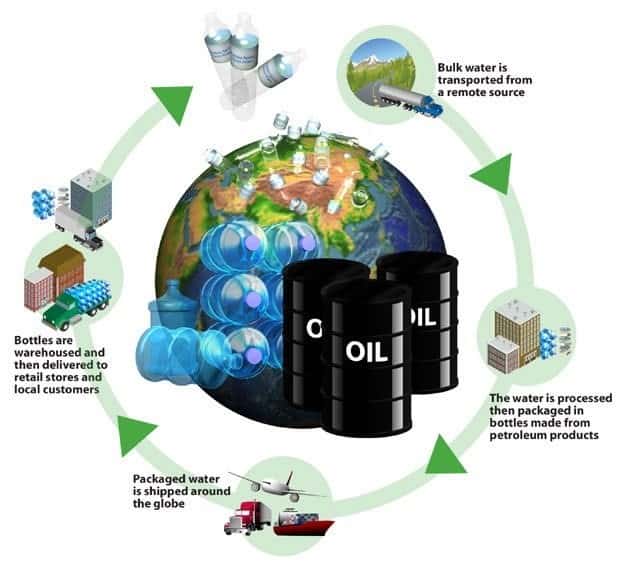
The water is not as pure as you may think!
- Bacteria are found in most bottled waters, sold for drinking purposes.
- Bottled water is usually disinfected to remove harmful microorganisms but this treatment is not intended to sterilize the water.
- The Canadian Food Inspection Agency (CFIA) has issued 29 separate recalls of 49 bottled water products since 2000 because these products contained unacceptable levels of mold and coliform bacteria, chemical contaminants such as arsenic, and “extraneous material,” including glass.
In fact, it’s tap water!
Dasani bottled water comes from the tap in Brampton, Ontario, while Aquafina comes from the tap in Mississauga, Ontario – both cities which draw their water from Lake Ontario. Nestlé’s Aberfoyle Springs is taken from the Wellington County public water supply, the same aquifer that Guelph tap water is drawn from.
The Cost of Bottled Water: Bottled Water Costs 2000 Times As Much As Tap Water
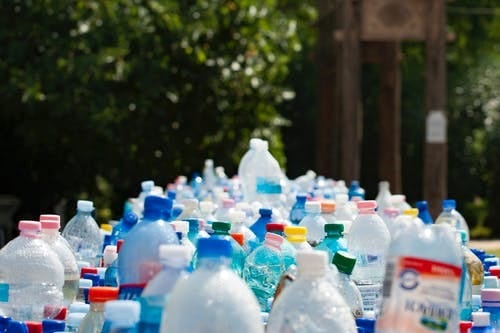
The Canadian government does not test bottled water, but we might believe it is in fact cleaner than tap water. The cost of bottles of water is outrageous:
Evian – $2.49 – 1.5L
Smartwater – $2.99/L
Tap Water – 1/10th of a cent/L
10 Things You Need to Know About Bottled Water – and Why You Should Stop Buying it*
1) A million plastic bottles are bought around the world every minute – which breaks down to 20,000 plastic bottles a second – and that number will jump another 20% by 2021.
At current consumption rates, we will be going through half a trillion plastic bottles a year by 2012. This number will far outpace recycling efforts, putting oceans, coastlines and other environments in jeopardy. We need to put our foot down now.
2) In Ontario alone, one billion plastic water bottles are sent to landfill every year.
While Nestle estimates that 70-75% of plastic water bottles are recycled in Ontario every year, the Polaris Institute – a non-profit organization that “challenges the influence of corporations on government and public policy” – estimates only 14 percent make it to recycling facilities in the province.
3) Bottled water is almost 2,000 times more energy intensive to produce than tap water
A research study from 2009 suggests that producing bottled water requires between 5.6 and 10.2 million joules of energy per liter, depending on transportation factors (a typical personal-sized water bottle is about 0.5 liters). That’s up to 2,000 times the energy required to produce tap water, which costs about 0.005 million joules per liter for treatment and distribution. The same research paper estimates that 50 million barrels of oil are dumped into the creation of a year’s worth of plastic water bottles (a number that has probably gone up since the research was conducted). Another sources estimates that the amount of oil used to make a year’s worth of bottles could fill one million cars for a year.
4) Plastic bottles can take 450 years or more to break down and decompose. Some estimates push that number closer to 1,000 years.
During this long process, chemicals leach into the ground, micro plastic particles are released into the water (which also means into the seafood we then consume – a side of microscopic plastic particles, anyone?) and animals choke on plastic bits when they mistake them for food.
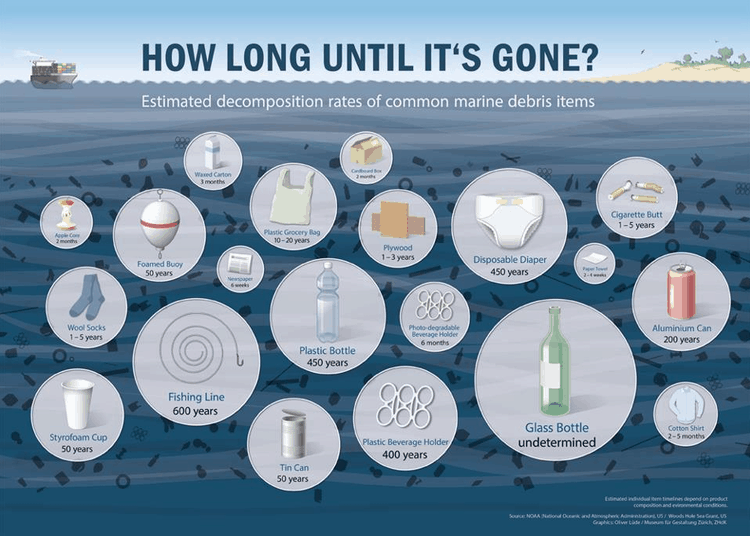
“While reports on how many of these get recycled vary – many plastic bottles end up in our forests, parks, rivers and lakes and many end up in landfills where they take hundreds of years to break down
— Maude Barlow, Honorary Chairperson of the Council of Canadians
5) Researchers recently tested bottled water for micro plastic particles and found that 93 per cent of the water tested contained some sort of microplastic, including polypropylene, polystyrene, nylon and polyethylene terephthalate (PET).
If you go to this site here, you can actually see the microscopic pieces of plastic swirling around. Researchers found an average of 10.4 particles of plastic 100 microns (0.10 mm, or larger than the width of a human hair) or bigger per litre and 314 smaller plastic particles per litre. The amount of particles varied from bottle to bottle: while some contained one, others contained thousands. These tests were only aimed at discovering the presence of micro-plastics in bottled water – the research into how plastic effects the body when consumed is ongoing. We don’t know about you, but we’re not waiting for the results to find out.
6) Tap water is strictly regulated by Health Canada and the provinces and territories, whereas bottled water is not.
The Guidelines for Canadian Drinking Water Quality spell out the maximum levels of potentially harmful substances that are allowed in drinking water and municipalities test their water sources constantly to make sure they are within these limits. Because bottled water is classified as a food, it falls under the Food and Drugs Act and is not subject to such strict guidelines.
In the same research mentioned above on micro plastics, the research team tested for micro plastic particles in tap water from more than a dozen countries across five continents. They found that bottled water had double the amount of micro plastics than the tap water.
7) It takes three times the water to make the bottle as it does to fill it
And here’s the greatest irony of the whole thing – more water is used in making the bottle than filling it. While the bottled water industry says 1.39 litres of water go into producing each bottle, these companies do not take the entire process into consideration and have therefore underestimated: a true water footprint should include all freshwater used in production, including the water used for packaging. When you take these externalities into account, the actual number is more like 3 litres of water used in the entire production of one plastic water bottle.
8) One gallon of bottled water costs approximately 2,000 times more than the cost of a gallon of tap water
The cost of bottled water ranges from 8cents/500ml (bought in bulk from a large chain) to $2.50/500ml (high-end brand bought from a vending machine), while the cost of tap water for Canadians is approximately tenths of a cent per litre.
9) The amount of bottled water purchased every week in the U.S. alone could circle the globe five times
That paints a pretty horrifying visual and rivals a similar statistic about straws (every day in the US, people consume enough plastic straws to circle the globe 2.5 times). And to be honest, this was said before the recent research that shows approximately one million plastic bottles are bought around the world every minute – so it’s probably more than 5 times.
10) As of 2017, the global bottled water market was worth $198.5 billion, set to reach $300 billion by 2024
Market researchers are forecasting that there will be a demand for over 409 billion liters of bottled water by 2024. This is something we have some control over. If we act now by boycotting bottled water and lobbying our local politicians and government to #BanTheBottle, we can cut that demand down.
Bottled water giants such as Nestlé have gained a reputation for going into communities (even when they are experiencing droughts), paying very little for the groundwater they are extracting and then selling it back to us at inflated prices, wrapped in plastic. Nestlé has even taken 1 billion litres of water on expired permits in Aberfoyle, Ontario. It’s time to say no to bottled water and the companies who are ripping off and destroying communities around the world.
“Droughts, climate change and over-extraction continue to impact our finite groundwater sources. We need to move to a bottled water free future to protect aquifers that communities rely on for drinking water.”
— Maude Barlow, Honorary Chairperson for the Council
*Source: https://www.waterdocs.ca/water-talk/2018/4/7/facts-about-bottled-water
